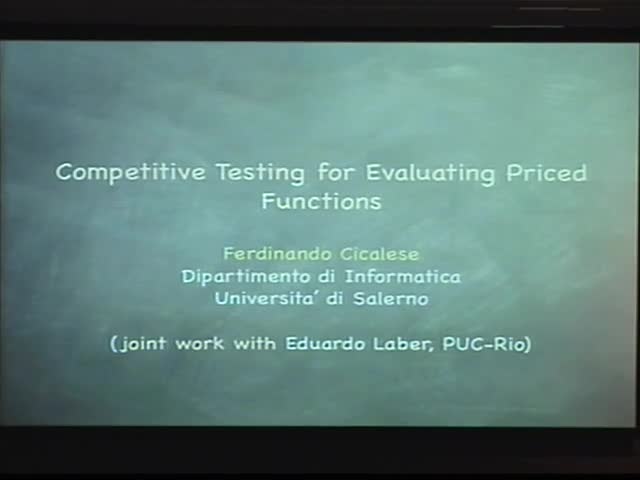Competitive Testing for Evaluating Priced Functions
Presenter
February 15, 2012
Keywords:
- Computer science
Abstract
The problem of evaluating a function by sequentially testing a subset of variables whose values uniquely identify the function’s value arises in several domains of computer science.
A typical example is from the field of automatic diagnosis in Artificial Intelligence. Automatic diagnosis systems employ a sequence of tests and based on their outcomes, they provide a diagnosis (e.g., a patient has cancer or not, a component of a system is failing or not). In general, it is not necessary to perform all the available tests in order to determine the correct diagnosis. Since different tests might incur also very different costs, it is reasonable to look for testing procedures that minimize the cost incurred to produce the diagnosis.
Another example is query optimization, a major issue in the area of databases. Query optimization refers to the problem of defining strategies to evaluate queries in order to minimize the user response time. In a typical database query, thousands of tuples are scanned to determine which of them match the query. By carefully defining a strategy to evaluate the attributes, one can save a considerable amount of computational time. In general, it is not necessary to evaluate all attributes of a tuple in order to determine whether it matches the query or not and a smart choice of the attributes to evaluate first can avoid very expensive and/or redundant attribute evaluations.
This talk will focus on the function evaluation problem where tests have non-uniform costs and competitive analysis is employed for measuring the algorithm's performance. For monotone Boolean functions we will present an optimal algorithm, i.e., with the best possible competitiveness. We will also discuss the case of some classes of non-monotone functions.
